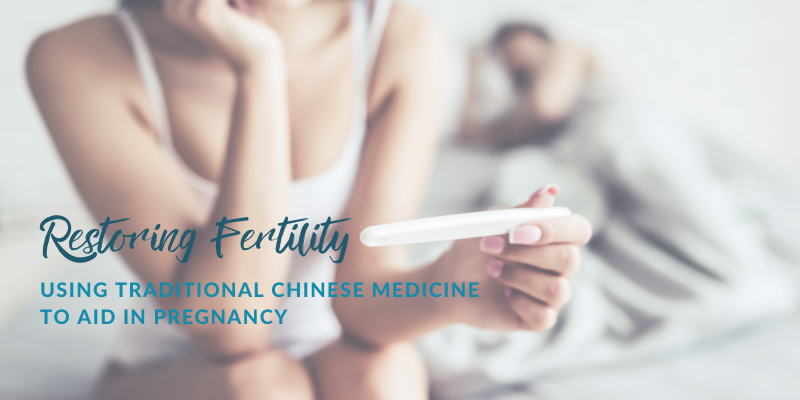Restoring fertility: using Traditional Chinese Medicine to aid in pregnancy

By Dr. Marcelle MacCallum, TCMD, R.Ac.
If you are having trouble conceiving, you're not alone. A recent study shows that 11.5% to 15.7% of Canadian couples have infertility. That's almost one in six couples.
Many couples have no symptoms of infertility until they start trying to conceive.
Defining Infertility
Infertility is defined as not being able to conceive after a year of regular, unprotected intercourse.
In Western Medicine, common signs and symptoms of Infertility in women are typically related to the length and duration of a women’s menstrual period, as well as when ovulation occurs:
- Amenorrhea: no period for at least 3 months, usually due to stress or excessive exercise.
- Oligomenorrhea: infrequent periods that occur more than 35 days apart.
- Polymenorrhea: frequent periods that occur less than 21 days apart.
- Irregular periods: Periods that are less than 24 days or more than 28 days. A normal period is between 24-38 days. Commonly due to a hormone imbalance.
- Anovulation: when ovulation has not occurred during the menstrual cycle
- Irregular ovulation timing: when ovulation occurs, but the timing of ovulation varies greatly from month to month

In Traditional Chinese Medicine, practitioners believe that any disease or issue due to an imbalance in the flow of Qi in the body. Signs and symptoms of infertility are often related to other underlying conditions.
In TCM, the causes of female infertility include:
- Congenital deformity
- Menstruation abnormalities
- Organ dysfunctions: Kidney vacuity, Liver depression, Heart and Spleen deficiency are some underlying roots of the problem of infertility
- Disturbances in the flow of Qi and blood
- Emotional disturbances
- Malfunctions in the Ren, Du, and Chong meridians
Treating Infertility with TCM
TCM has been used to treat infertility for thousands of years. It can be treated with Chinese herbs, acupuncture or a combination of both. These traditional Chinese approaches can and are often combined with Western medicine in treating infertility.
Acupuncture helps qi flow through the body and aids in blood flow to the reproductive organs. It helps stabilize hormone levels and can increase ovarian function in women.

To treat infertility, TCM practitioners get to the deeper, underlying root of the problem. Attention is paid to:
- Length of the menstrual cycle, whether it is within normal range or is irregular.
- The flow (amount of blood lost during a period), whether heavy loss of blood, shortened blood loss in duration or intermenstrual bleeding, spotting or bleeding that occurs between periods.
- Colour (light red, red, purple)
- Consistency of the discharge (thin, thick, clotted)
- Pain or physical discomfort during a period, including levels of uterine prostaglandin or endometriosis.
- Emotional disturbance, such a past trauma or present stress that may be playing a role in gynaecology issues.
The correct diagnosis is critical when creating an effective treatment plan. It is possible to fall under one category, but most often patients will have a unique combination of two or more imbalances.
ABOUT MPH
HOURS OF OPERATION
Mon: 7AM - 7PMTues: 7AM - 7PM
Wed: 7AM - 8PM
Thurs: 7AM - 7PM
Fri: 7AM - 5PM
Sat: 7AM - 2PM
Sun: 10AM - 3PM
Copyright © 2023 Movement Performance & Health. All rights reserved.

